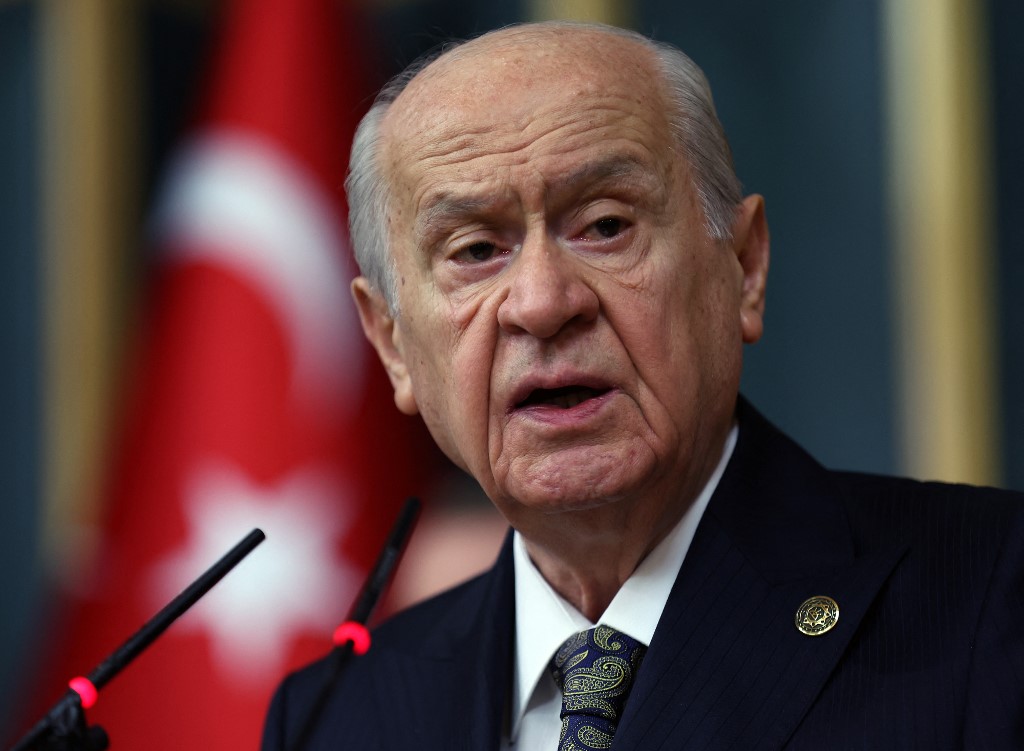Nationalist Movement Party (MHP) leader Devlet Bahçeli, Turkish President Recep Tayyip Erdoğan’s far-right ally, has called for either closure or restructuring of the country’s Constitutional Court due to its decision to release a jailed lawmaker, which led to a judicial crisis, the state-run Anadolu news agency reported.
The ongoing crisis was ignited by the case of Can Atalay, an opposition lawmaker from the Workers Party of Turkey (TİP) who filed a petition with the Constitutional Court claiming rights violations due to his continued incarceration despite acquiring parliamentary immunity in the May elections.
The top court ruled in favor of Atalay, but the Supreme Court of Appeals defied this decision, sparking widespread criticism and accusations of a judicial coup.
Bahçeli, speaking at a party meeting on Tuesday, said the appeals court has fulfilled its obligations and that it is the Constitutional Court’s “controversial” decisions which lie at the heart of the crisis today.
“We are left with only two options at this point: The top court should either be closed down, or it should be restructured,” said Bahçeli.
He also attacked chief justice Zühtü Arslan, whom he accused of long ago exceeding his authority and of being an extension of a bloc of opposition parties.
“Don’t deal with the state of Turkey. If you have the courage, go to Kandil,” Bahçeli told Arslan, referring to the Kandil Mountains in northern Iraq where hideouts of the outlawed Kurdistan Workers’ Party (PKK) are located. The PKK is listed as a terrorist organization by Turkey and much of the international community.
Prior to the presidential and parliamentary elections in May, Erdoğan and Bahçeli frequently accused the opposition bloc of ties to the PKK, a claim strongly denied by the opposition parties.
This is not the first time that Bahçeli has attacked the top court, with the court attracting harsh criticism from the MHP leader many times due to its decisions on politically motivated trials.
President Erdoğan also last week sided with the appeals court in the crisis over Atalay and signaled that his government may press ahead with changes to limit the power of the Constitutional Court. He accused the top court of repeatedly making mistakes.
Atalay, who is at the center of the crisis, was elected to parliament while serving a sentence for his alleged role in the anti-government Gezi Park protests of 2013. Jailed businessman Osman Kavala was the most prominent defendant in the same trial and was given a life sentence.
Since Atalay was not released from prison despite acquiring parliamentary immunity, he applied to the Constitutional Court in July claiming that he has been subjected to several rights violations due to his continued incarceration.
The top court ruled last month that Turkey violated Article 67 of the Turkish Constitution, which concerns one’s right to elect, stand for election and engage in political activities, as well as Article 19, which concerns the right to liberty and security.
Atalay was not released from prison despite the top court’s decision, with a lower court referring the case to the Supreme Court of Appeals, which upheld his 18-year conviction in September.
In a move that triggered a significant backlash, protests and accusations of a judicial coup, the Supreme Court of Appeals made its controversial decision against the release of the lawmaker in addition to filing criminal complaints against top court judges.
The Turkish judiciary faces widespread criticism for its perceived lack of independence. Critics accuse Erdoğan of exerting control over the judiciary and establishing one-man rule in the country, particularly after a coup attempt in 2016, following which he launched a massive crackdown on non-loyalist citizens and the country’s subsequent transition to a presidential system of governance, which granted him vast powers.
Many say there is no longer a separation of powers in the country and that members of the judiciary are under the absolute control of the government and cannot make judgments based on law.
In a development that validated the critics, Turkey was ranked 117th among 142 countries in the rule of law index published by the World Justice Project (WJP) in October, dropping one rank in comparison to last year.

